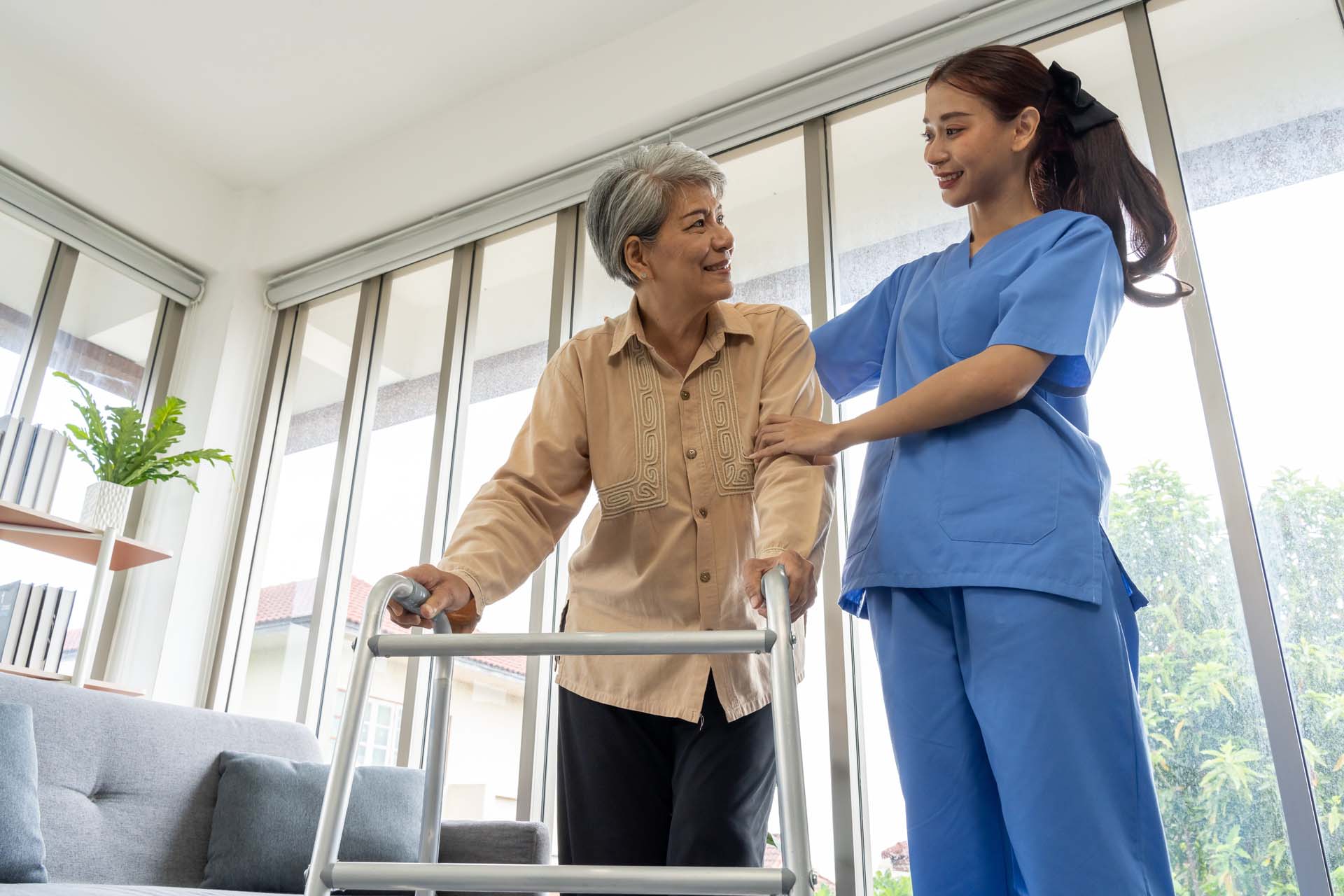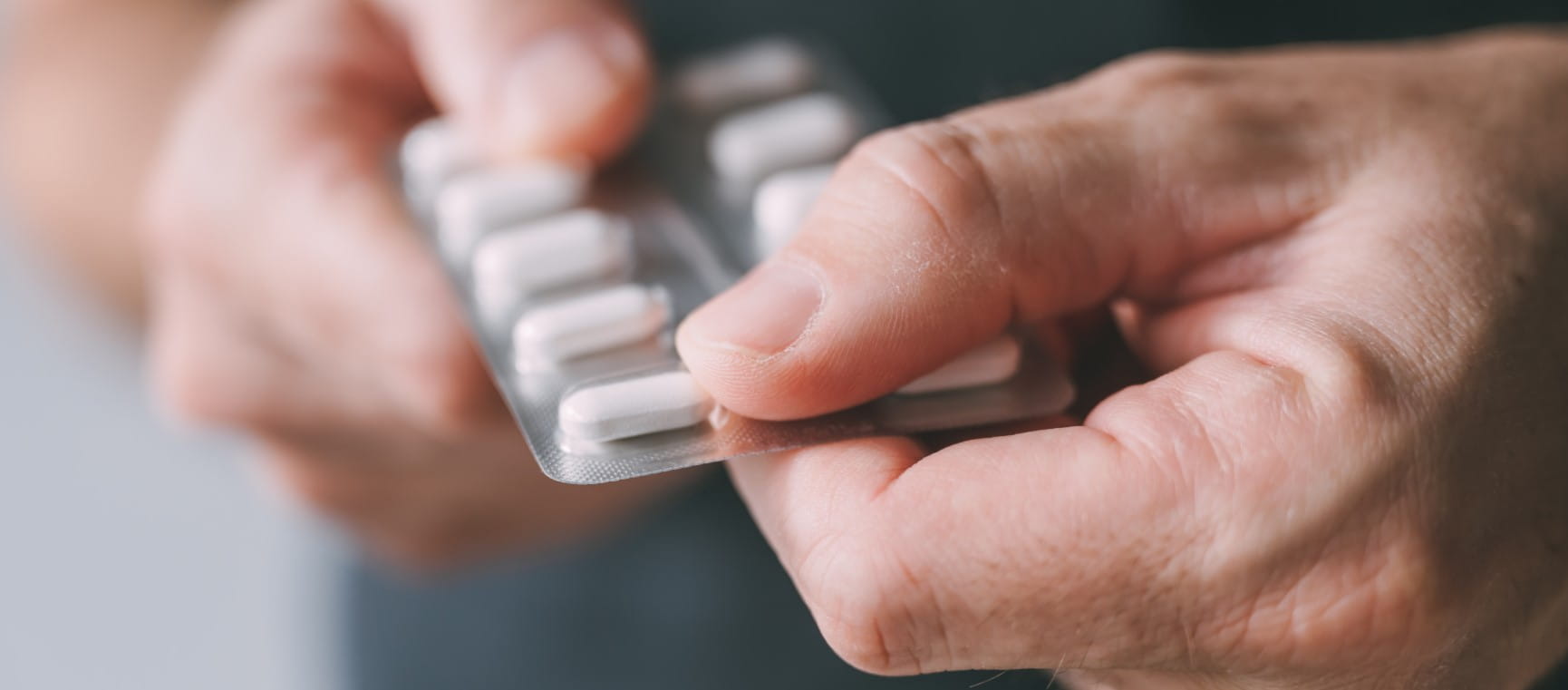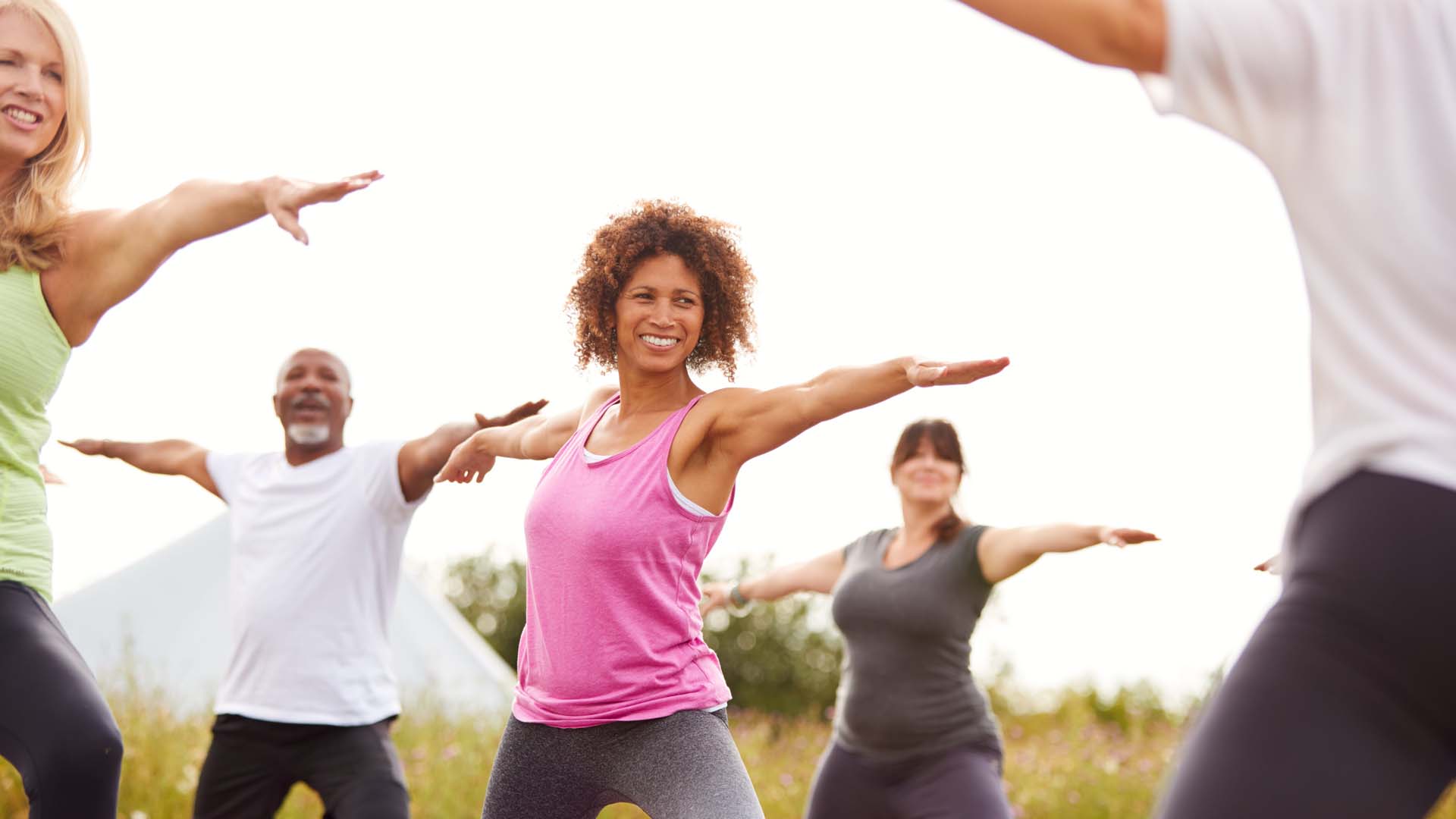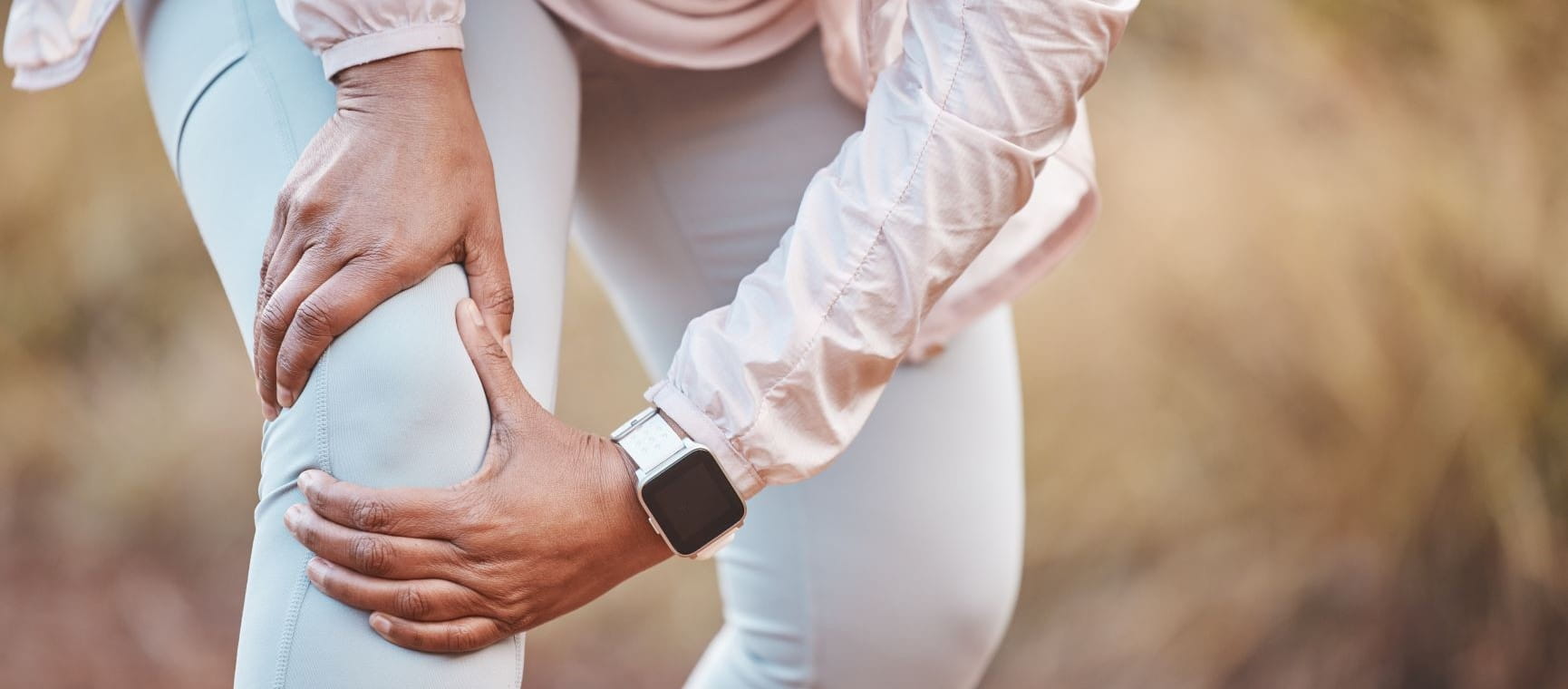
Whether it’s a creaking noise when you bend them, stiffness when you get up in the morning, or a painful twinge when tackling the stairs, almost half (47%) of the over-50s report suffering from some sort of knee pain.
Around 100,000 knee replacements are done every year in the UK. Hardly surprising when you think that the knee joints are the largest in the body and bear up to three times your body weight when walking, six times your weight when running and ten times more when going up or down stairs.
"The most common types of knee pain in the over-50s are in the front of the knee (the kneecap or patella) and this is a sign that your kneecap is starting to wear out," explains Jonathan Miles, consultant orthopaedic surgeon at the HCA Wellington Hospital in London.
"You may also feel pain at the side of your knees, which is a sign that the actual knee joint is wearing out. It normally starts with an aching pain when you are more active than usual – such as pain on longer walks, or when you’re walking up and down hills that you’re not used to.
"Then slowly but surely you can end up with pain even at rest and at night, which keeps you awake."

"Osteoarthritis (where protective cartilage that cushions the ends of bones wears down) is the main cause of knee pain for the over-50s, and the number one cause of that is injury," explains Philip Conaghan, professor of musculoskeletal medicine at the University of Leeds and director of the NIHR Leeds Biomedical Research Centre.
"People who tore their knee cartilage or ligaments when they played sport or went skiing may remember these injuries, but most people don’t remember minor injuries from their twenties. But the effects of these may be felt when you get older."
Osteoarthritis pain is very much linked to weight-bearing, he says. "Most people who have it feel worse pain at the end of the day – the more they’ve been on their feet, the worse they are. But that doesn’t mean their knees are “worn out”.
"It’s simply not true that your knees only have so many miles in them."
Other risk factors for knee problems include being overweight/obese and the loss of muscle strength that comes from ageing, plus some genetic conditions.
Our experts share five simple ways to help reduce knee pain.
Your knees are supported by your quadricep muscles over the front and side of your thighs, between your hips and knees, and they work to extend the knee.
"Exercises to strengthen your quads won’t cure you, but they will reduce your pain and for some people doing the exercises regularly will postpone or even prevent them ever having to have a knee replacement," says Prof Conaghan.
He recommends a straight leg lift and walking laps in a swimming pool (if walking is too painful) to strengthen your quads.
"Ideally, you’d make it a daily habit for 30 minutes, but even if you can only manage it three or four times a week, it will make a difference and improve standing and how easily you can get out of chairs and walk."

"As you improve, hold your leg up for longer, working up to 30 repetitions per side. If it gets too easy, take the towel away and try straight leg raises," adds Prof Conaghan.
For more, see southtees.nhs.uk.
Sammy Margo, a chartered physiotherapist at Smartphysio, London, says you can also strengthen your quads by practising mini pliés. You can do these while standing in queues or brushing your teeth.
"Stand with your feet in second position – the ballet position where your feet are hip width apart and pointing outwards," says Margo. "Bend your knees outwards ever so slightly and then clench them as a hard as you can for five seconds and repeat 20 times. Aim for two sets of these, three times a day."
She also recommends standing up and sitting down 10 to 20 times each time you get up from a chair, without using your arms, to strengthen your quads.
Miles suggests Pilates and yoga as both teach slow, controlled, low-impact conditioning work that strengthens and stabilises the muscles around the knee.

"It’s important to keep moving, even if it’s only walking round the house and up and down the stairs," says Margo.
"Aim for at least 30 minutes of exercise five days a week – between 7,000 and 10,000 steps a day is the target. Swimming and cycling are also good forms of exercise if you have knee pain but avoid breaststroke as it’s a rotation thrust movement that the knees don’t like. If you can’t manage a 30-minute walk do three 10-minute “snack” ones instead.
"Taking a painkiller or applying a non-steroidal anti-inflammatory cream half an hour before you exercise can reduce pain."
Miles says if you’ve previously been sporty and active and are experiencing age-related arthritis knee pain you may have to adjust the intensity of your exercise.
"If you’re a tennis player you may need to drop back from playing singles to doubles; if you previously jogged you may be better walking instead," he says.
"For those who haven’t been exercising much, it’s a case of doing little and often and building up slowly, rather than going crazy with exercise. Try to do 10% more each time, not 100% more. If you go too hard, you’ll just end up inflaming the knee and making it worse."
Miles says if you rate your pain as five or six out of ten then that’s too much.
"If you’re still in pain by night-time after exercising, that’s too much too, and if your knee is swollen and stays that way for more than 24 hours you need to ease off. Do 20% less in terms of resistance, repetitions and distance."
Being overweight or obese puts pressure on your knee joints. One study by the University of Southampton found that if all overweight people reduced their weight by 5kg or until they got into the healthy range, 24% of all osteoarthritis-related knee surgery could be avoided.
"If your BMI is 40 or above, you’re going to be much more likely to have knee arthritis," says Miles. "And if you end up having knee surgery, it’s also more likely to fail."
For every 1lb of weight you lose it reduces pressure on your knee joints by 4lbs – so even a small amount of weight loss will make a difference.
"If you are starting to get knee arthritis symptoms at the front of your knee, you don’t want to be wearing high heels," says Miles.
"If you have any type of knee pain at all, wearing trainers or trail shoes is going to be much more comfortable than wearing formal leather ones. My tip is to get advice from a running shoe shop on the best ones to suit your gait."
Margo advises that insoles and inserts may also help ease knee pain. "If your foot arch is slightly fallen that will cause your knee to fall inwards and cause stress and strain on the inside of the knee and an insert will help offload it," she says.
She suggests seeing a podiatrist who can recommend a precise orthotic/insole to suit your foot. You could also ask a physiotherapist or podiatrist about AposHealth footwear, specifically designed for knee pain by correcting gait, and recommended by NICE, the government’s drugs and treatments advisory body.
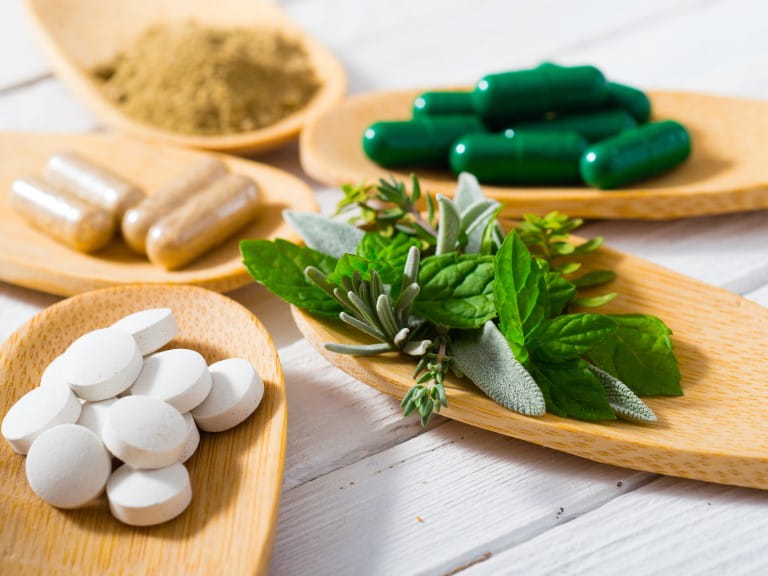
"There isn’t a lot of good evidence from studies that supplements will help with knee pain," says Miles. "None seem to grow cartilage back, but there have been some studies involving big numbers to see if supplements slow down progression of arthritis.
"Glucosamine, chondroitin and turmeric have been studied the most, but MRI scans show they don’t seem to do much. However, some people report they get benefits – for instance, in various studies, between a half and one third of people taking glucosamine or turmeric said they felt better, and their pain scores were lower."
He said it may be worth trying them for three to six months. "They may do you some good, but if they don’t, they’re still cheap and their side effect profile is virtually zero."
Margo says a Canadian study published in the British Medical Journal found that vitamin D deficiency predicted worsening knee pain over five years and supplements may therefore improve symptoms.
And another Canadian study published in 2023 found significant improvements in knee pain in patients with osteoarthritis who took low molecular weight collagen peptide supplements, though the authors said larger trials were needed.
The evidence on omega 3 fatty acid (fish oil) supplements is mixed, but a 2020 Australian study found fish oil significantly reduced osteoarthritis pain in overweight and obese people.
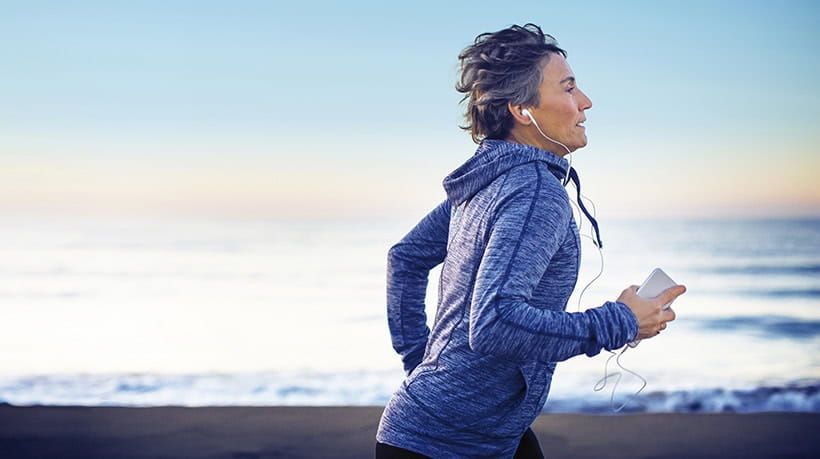
Health insurance for people over 50 that provides a quicker route to diagnosis and planned medical treatment in a private facility.
Underwritten by Bupa Insurance Limited.

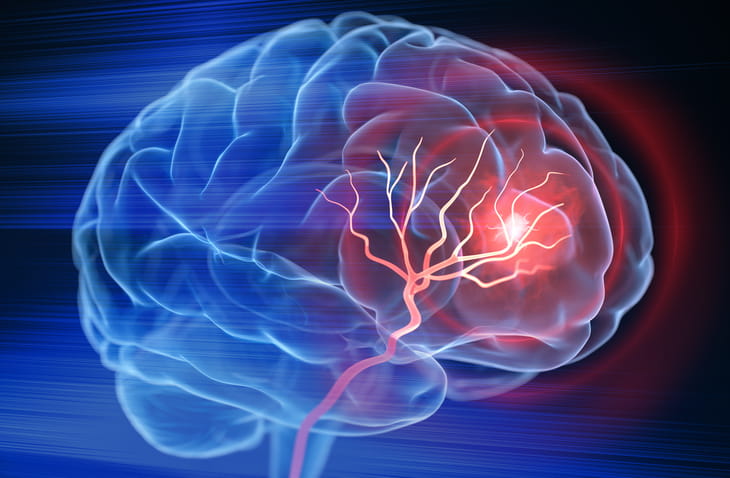
Facial weakness, a sudden headache and dizziness can all be signs of a stroke, we've got the facts from an expert.

Knee pain is more common as we age: to help we've got the best advice from 3 leading experts with easy ways to make a difference.
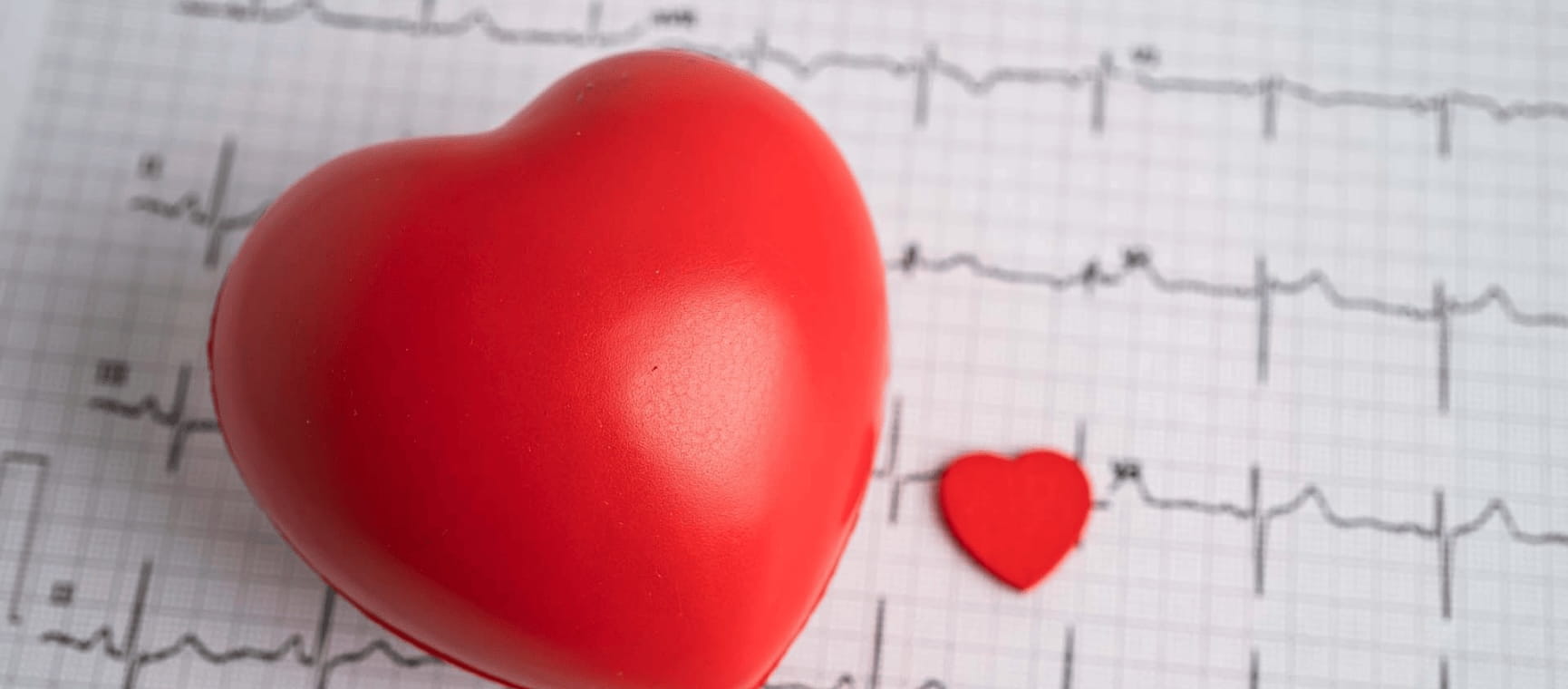
Do you know the symptoms of a heart attack? Here’s what to look out for, and how to prevent one.
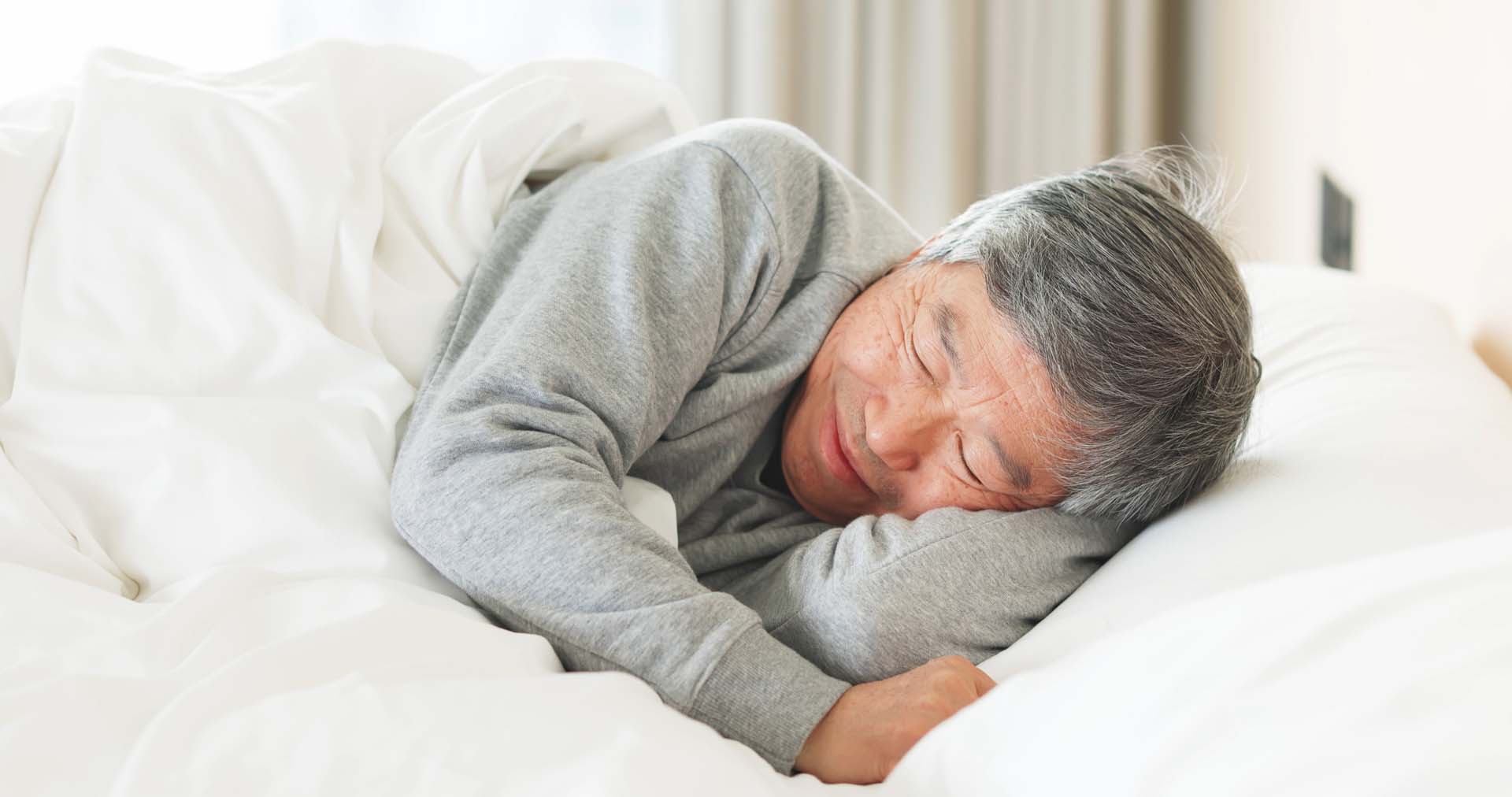
Front, back or side? Which sleeping position is best for you as you get older, and which ones you should avoid
